
Imagine an army general winning a battle simply by ‘winging it.’ Sounds like a real streak of good luck, doesn’t it? Instead, military leaders always look for weaknesses or opportunities and recruit informants for the same. Thereafter a strategic plan is devised that increases their likelihood of winning.
Devising a content strategy isn’t much different. And to formulate a top-drawer content strategy, the informant you should be working with is search insights.
Search Insights hold a tremendous value that can be used to make informed content creation decisions, thus making knowledge workers’ lives easier. But before answering how, let’s find out why harnessing the power of analytics to build an optimized and data-driven content strategy is indispensable.
First and Foremost – Why Search Analytics?
The catchphrase ‘data is the new oil’ perfectly paints a picture of our collective online footprint. According to SeedScientific, given the amount of data created every day, there will likely be 175 zettabytes of it by 2025; where one zettabyte is equal to a trillion gigabytes. Yikes!
Your organization, too, might be creating ample content to empower customer self-service. But once you’ve sown the content seed in the information jungle, how do you ensure its continuous growth, relevance, accuracy, and findability? That is where search insights come into play. It can help organizations determine what users find useful as well as redundant.
What’s more, the tons of reports also enable enterprises to evaluate how customers interact with their help centers or support portals, thereby laying the foundation to bridge content gaps, if any.
Sounds intriguing, right? So without further ado, let’s take a look at some reports that can help you develop a contextualized and effective content strategy.
8 Actionable Reports You Must Track for an Unbeatable Content Strategy
Organizations are scrambling to produce more content. However, they seldom take out the time to craft a content strategy. Given below are the key reports you must focus on, from the perspective of both customers and knowledge workers:
A. Analytics to Assess Content Interaction
These reports ensure you’re providing content that helps users and optimizes your content strategy that resonates with them:
1. Searches with No Results
One of the biggest gripes users have is encountering zero results for their queries. With this metric, organizations can easily identify the searches that return no results and use this knowledge to create relevant and contextual content, thus ensuring you transform a dead end into a road ahead.
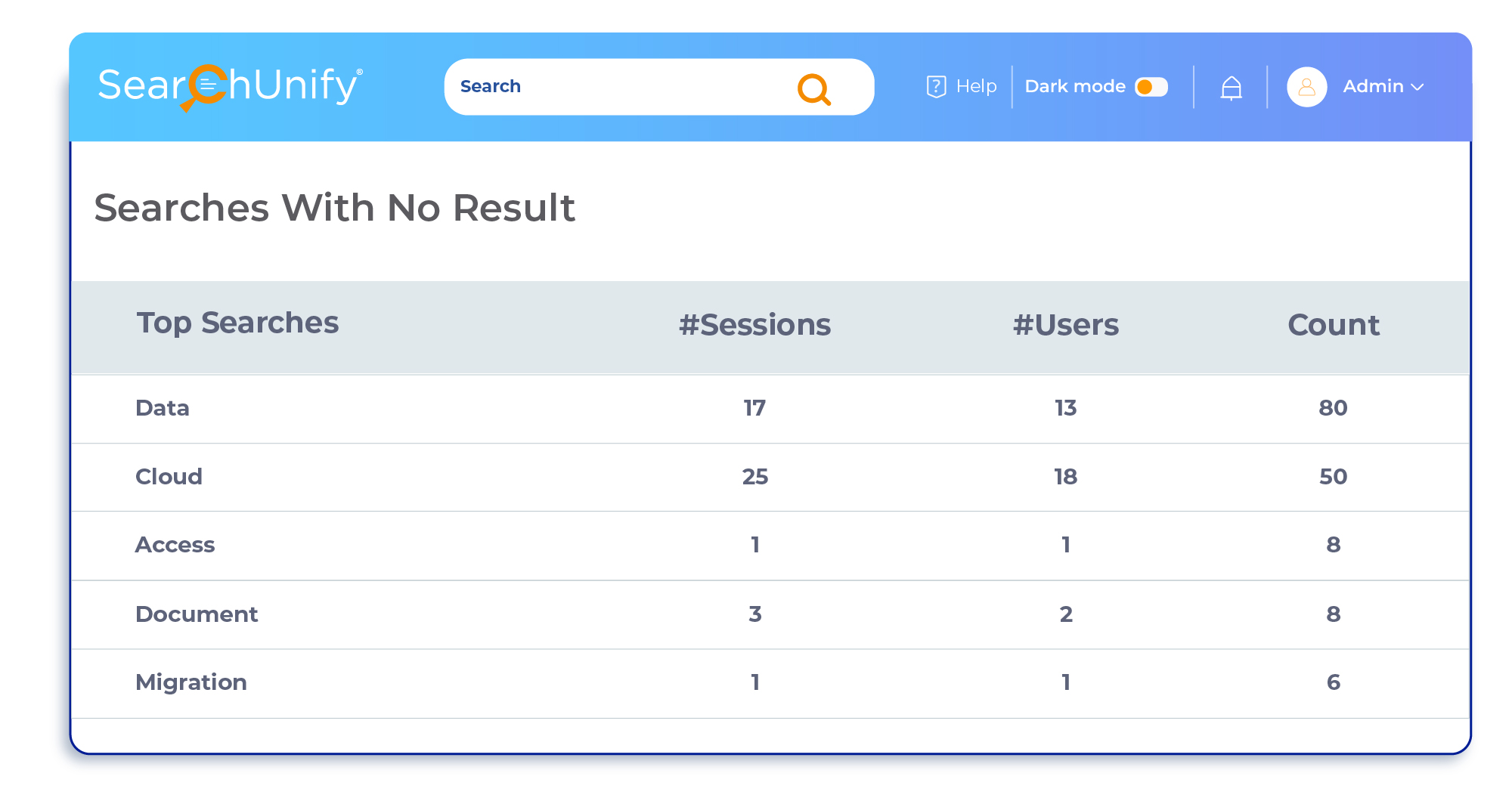
2. Searches that Resulted in Case Creation
The only thing worse than finding no information is finding outdated or irrelevant information. When that happens, customers end up doing the evitable – raising a ticket. With detailed insights into the content performance, popular searches, bounce rates, etc., support teams can update articles to include relevant information, thereby driving content consumption.
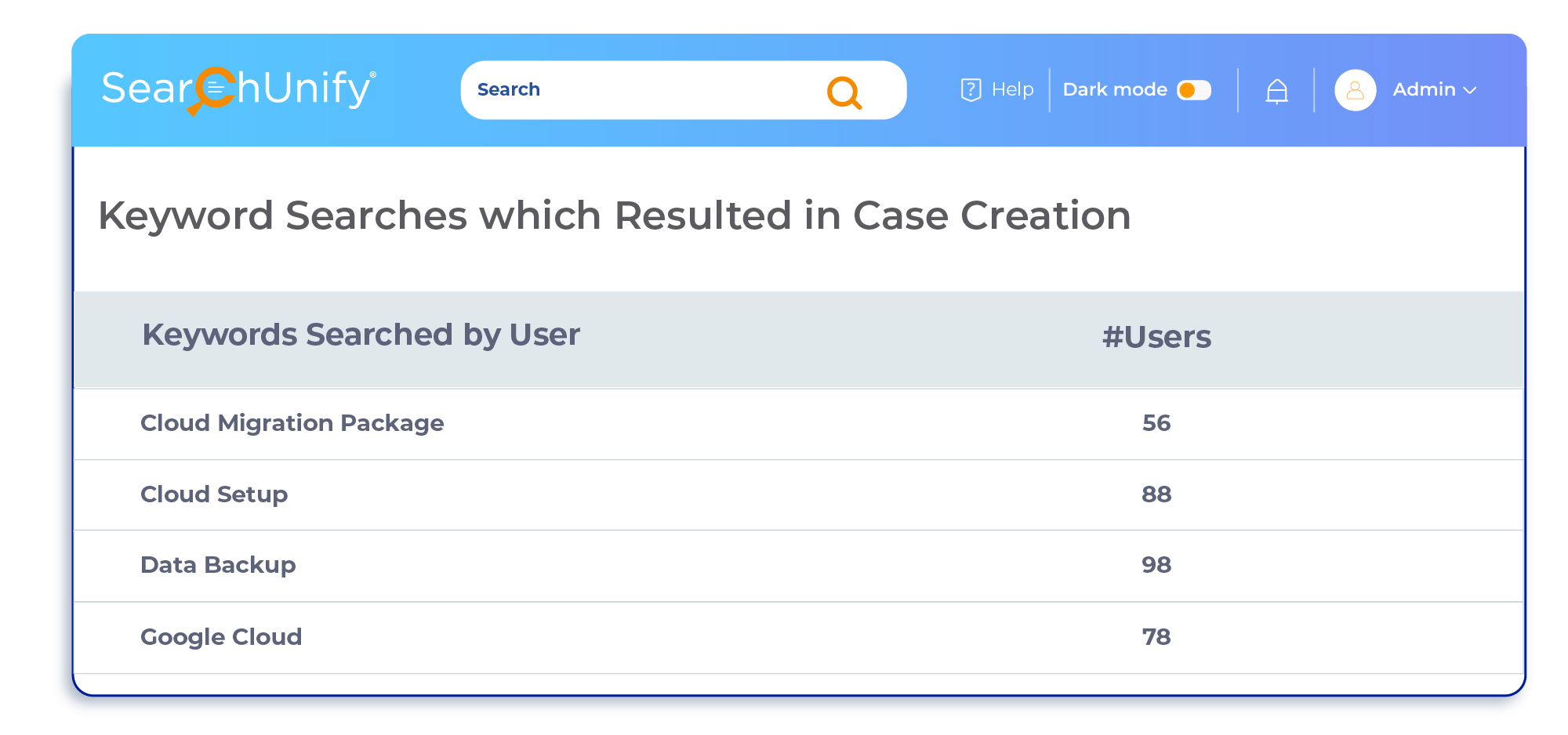
3. Searches with No Click
If your users aren’t engaging with the results, a relevancy check might be required. Chances are, the ranked results failed to resonate with the voice of customers (VoC). They did not address the searcher’s needs, expectations, problems, and/or complaints. With rich search analytics, knowledge workers can identify searches that were unsuccessful, hence uncloaking content gaps. Subsequently, the knowledge team can also leverage this information to understand whether only the titles and meta descriptions need to be updated or the information needs to be revised to improve the quality of existing articles.
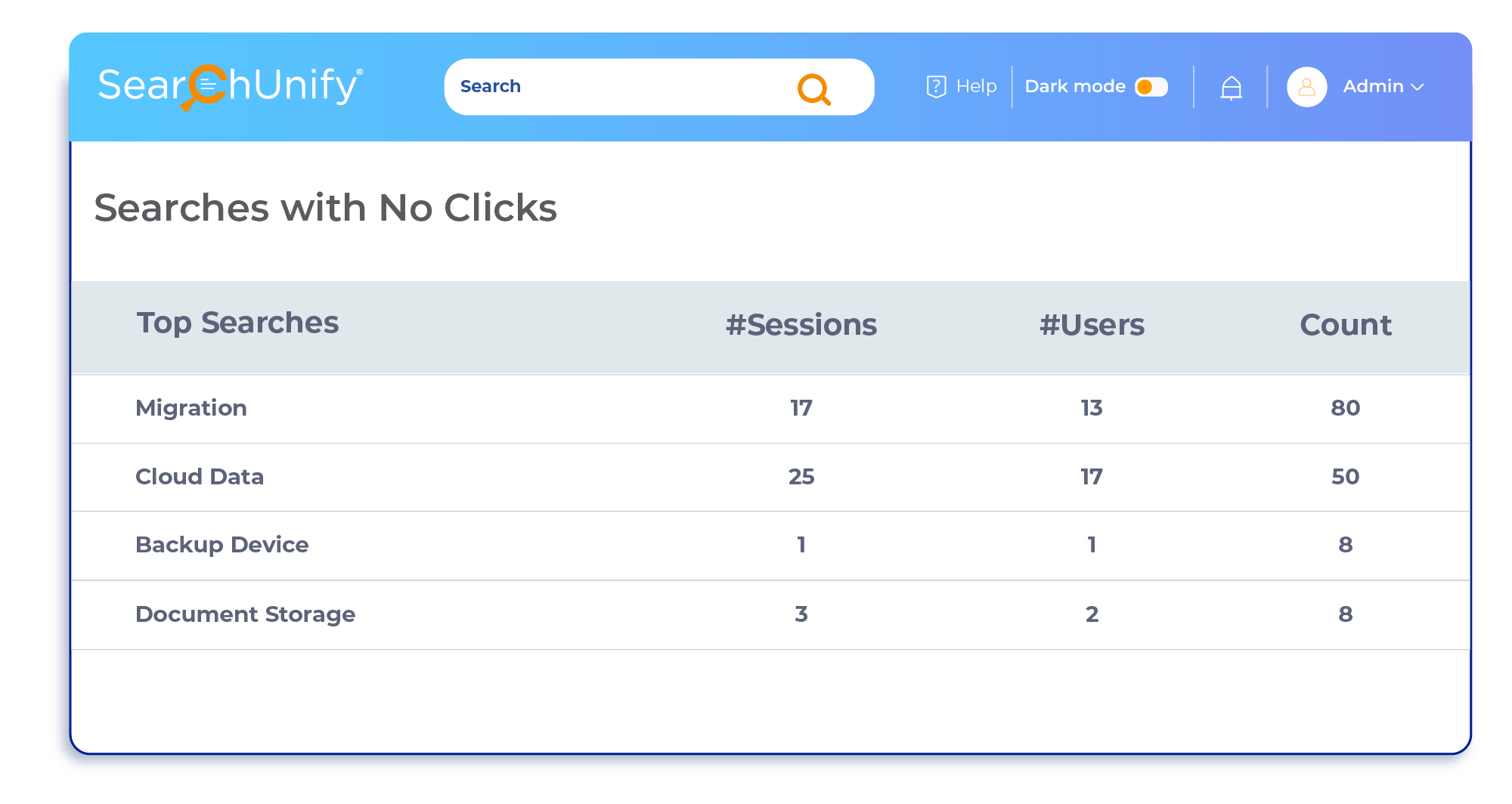
4. High conversion Results Not on Page One
Search insights can also outline high conversion articles that are not ranking on the first page. With visibility into the best-performing content, knowledge teams can manually tune the relevant results to always stay on top. Some advanced solutions offer the ability to rank the results based on various factors such as user intent, context, synonyms, etc.
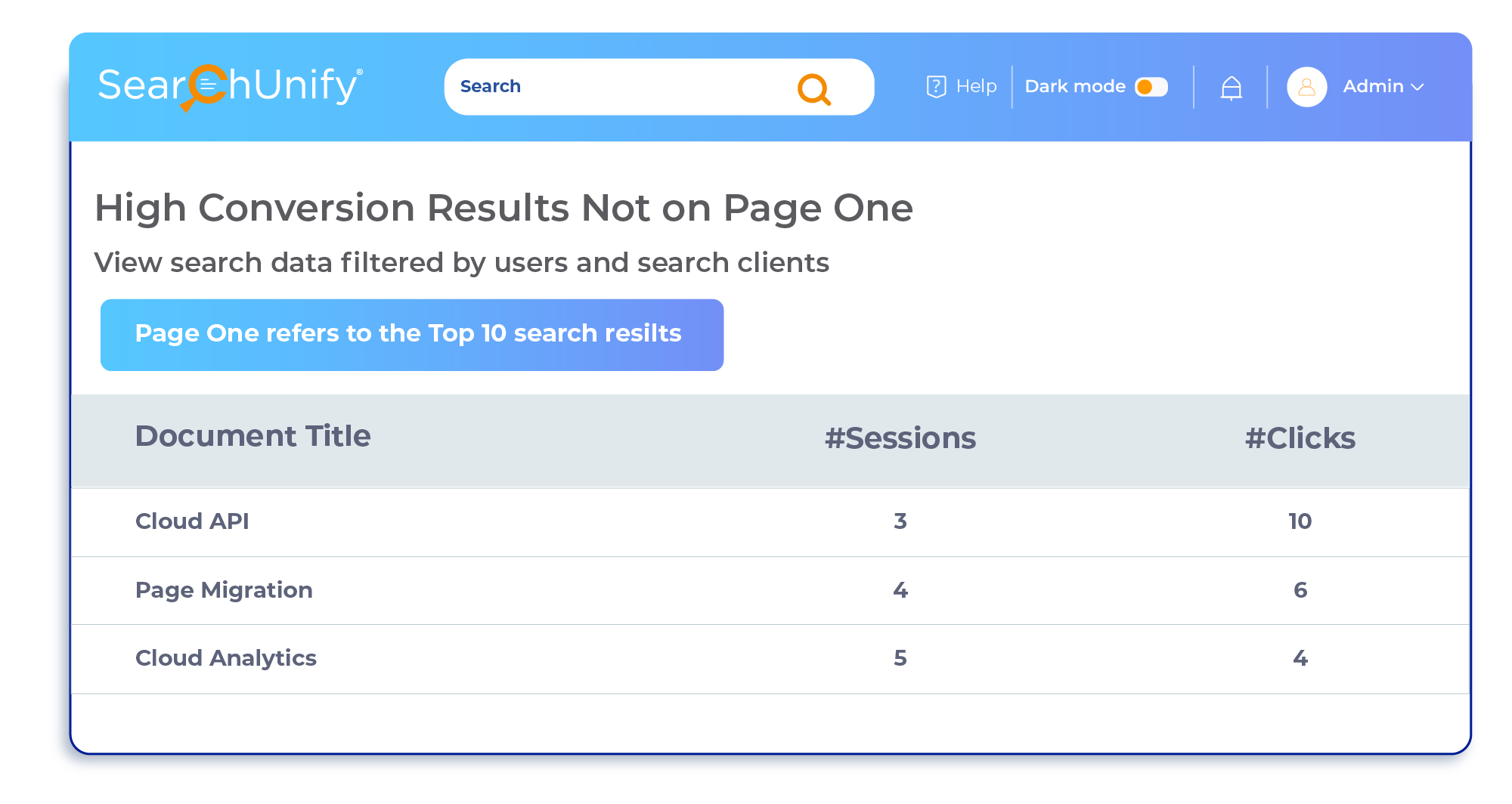
B. Insights to Assess User’s Digital Behavior
By tracking these reports, knowledge workers can keep a real-time pulse on what the users prefer and can easily spot low and high-performing content. Thereafter, they can align their efforts accordingly.
1. Low-Impact KB Articles
Search Analytics can save the day by identifying pieces that failed to deflect cases. Knowledge workers can further analyze them to ascertain the root cause of their lackluster performance. Thereafter, the articles can either be archived or updated accordingly.
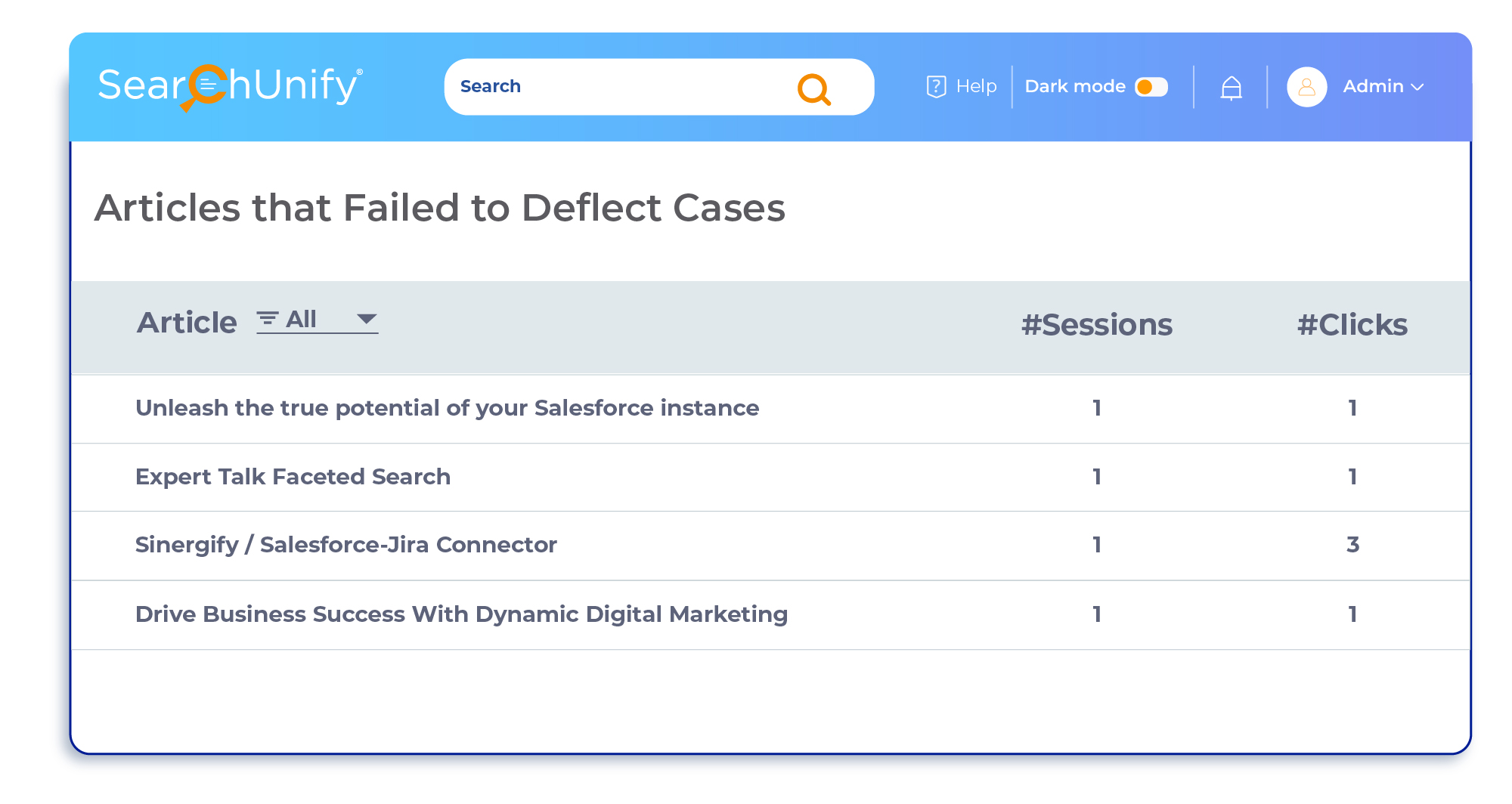
2. Articles that Deflected Cases
On the positive side, search analytics also yield reports on articles that aided customers and helped reduce the support caseload. It’s an in-depth report that captures the number of clicks each article receives along with session reports in which they were consulted.
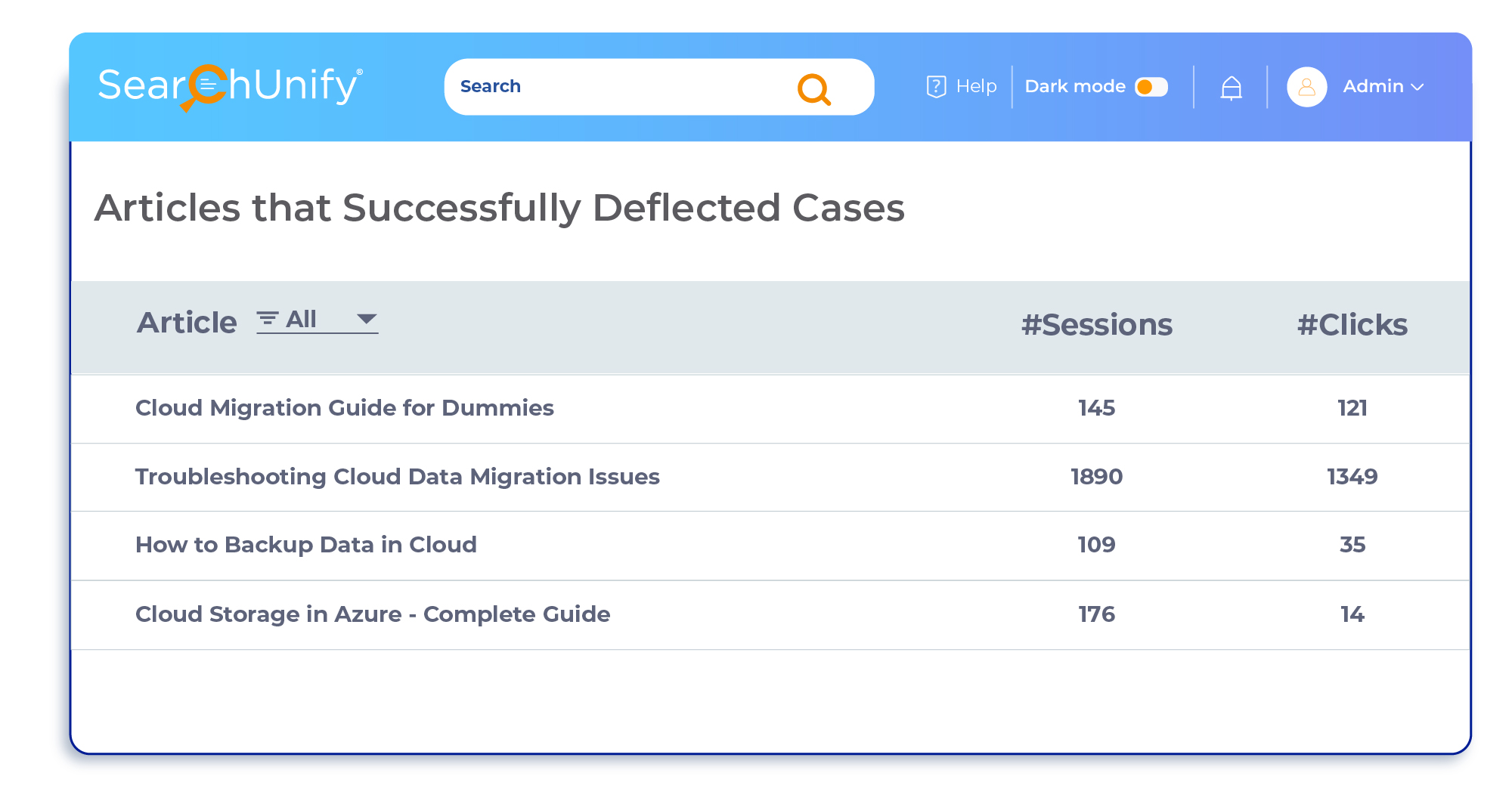
3. Articles Used by Agents But Not Found by Customers
Search Analytics also glean insights on articles that agents found useful but couldn’t find their way to the customers. In this case, if the article solves a common issue such as a recent bug fix, you can simply pin it on your homepage or online community for improved discovery.
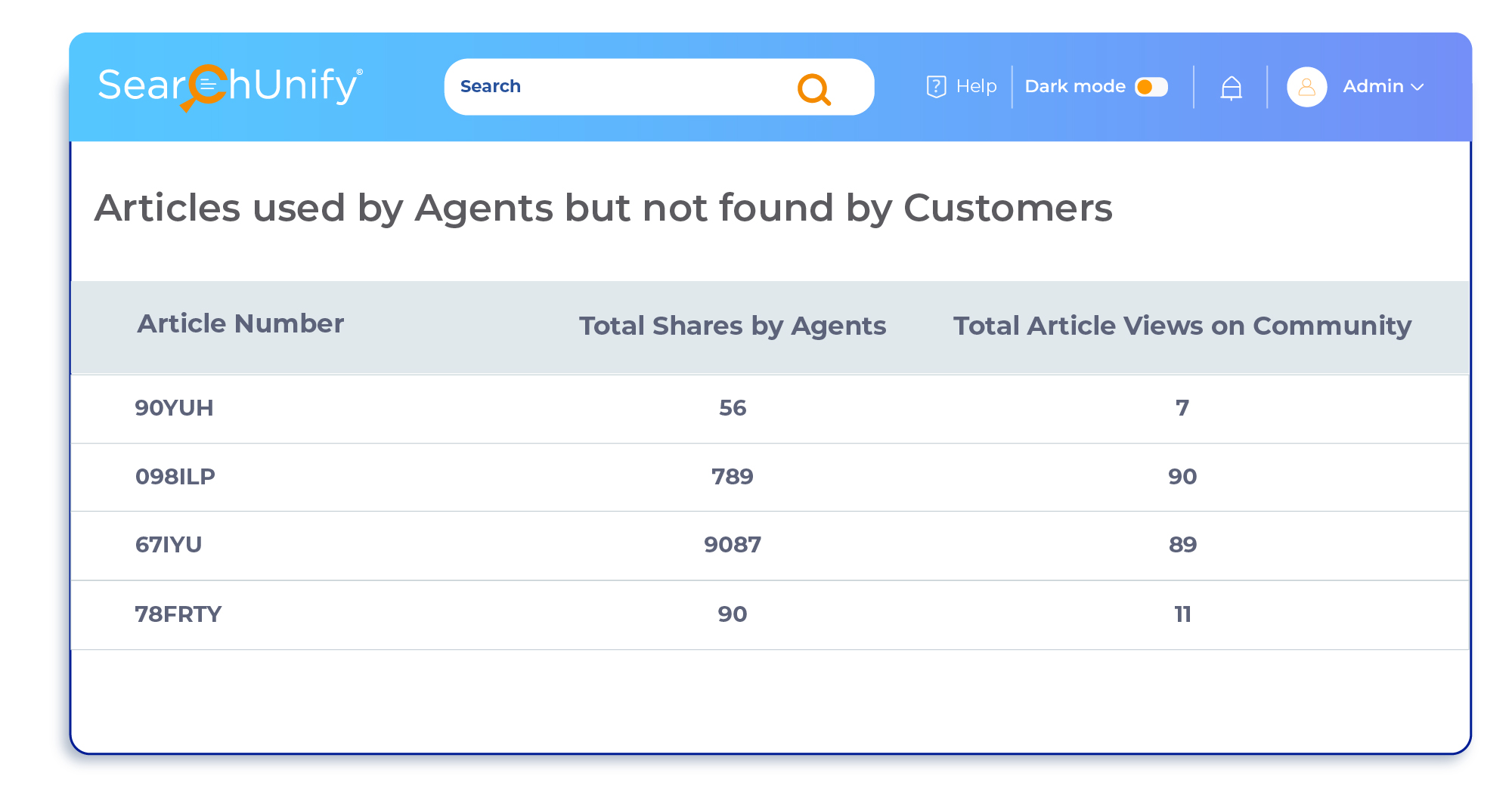
4. Support Content Effectiveness Analytics
It enables knowledge workers to establish the number of cases that were deflected due to a specific article. It also lays out the precise keywords that this article ranked for along with the keywords used for searching. By leveraging this report, knowledge workers can annex new, missing, and additional tags in the backend to ensure it incorporates the VoC and guarantees a seamless search experience.
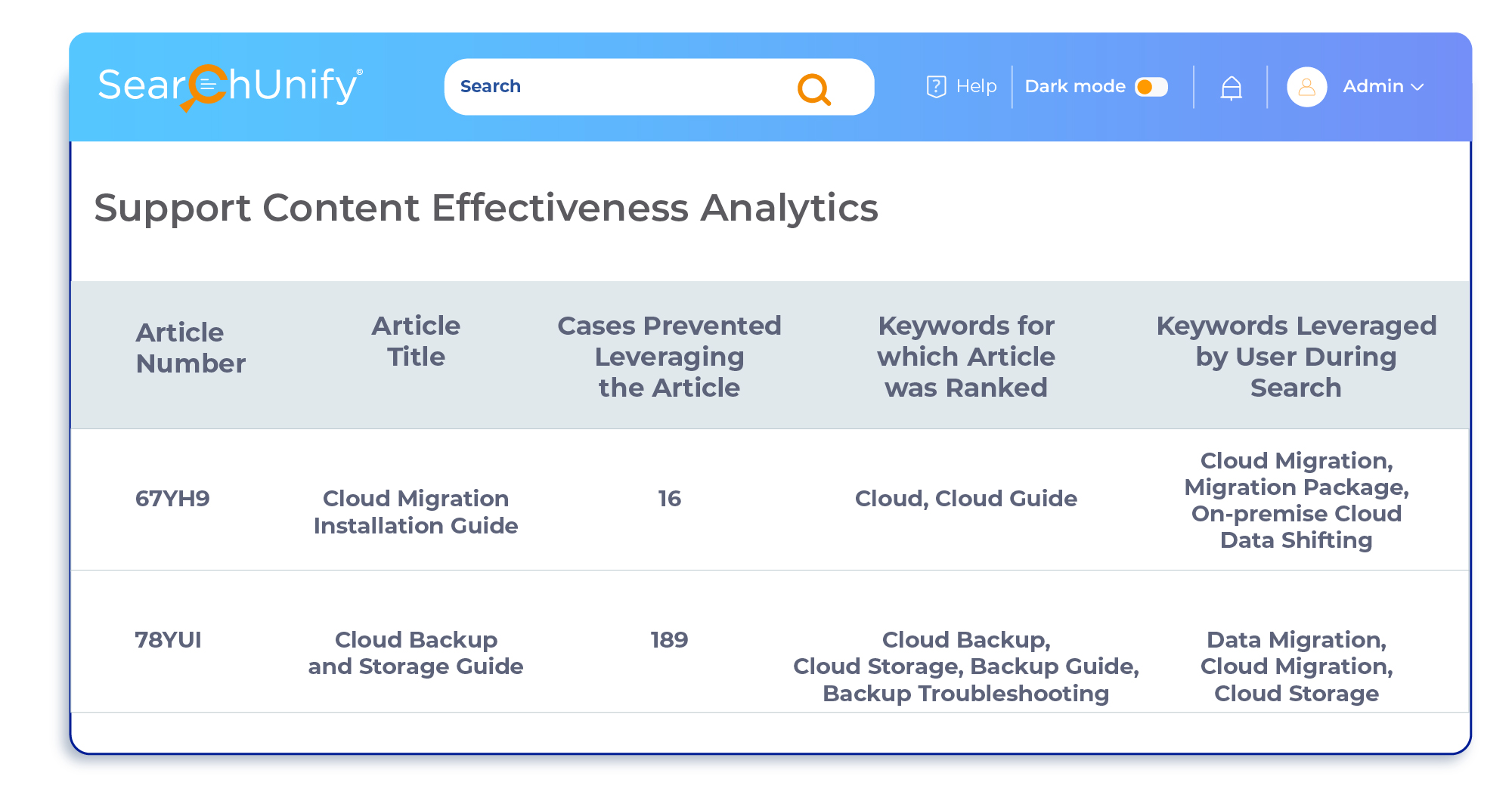
Build Your Own Insights-Driven Content Strategy
The rationale behind tracking these reports is to enable your organization to declutter your self-help portal and ensure users find what they seek. Additionally, they empower you to weave strategies that easily plug any knowledge gaps and take your customer experience to a higher echelon.
That said, not every run-of-the-mill search engine can produce/serve granular reports to scale your content strategy. It’s a trick that only next-gen cognitive platforms like SearchUnify have perfected. Interested in leveraging the power of search analytics and better informing the direction of your content strategies? Then, request a demo today.



















